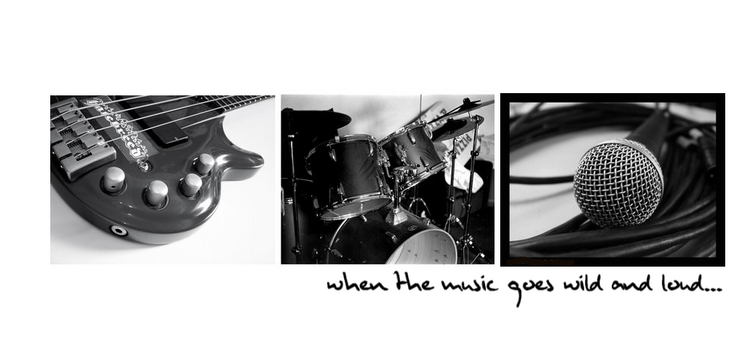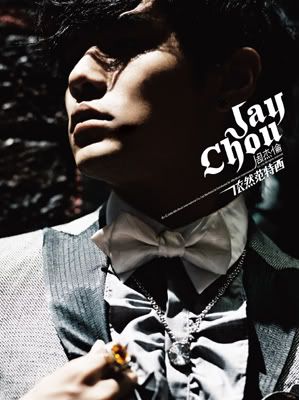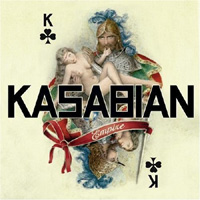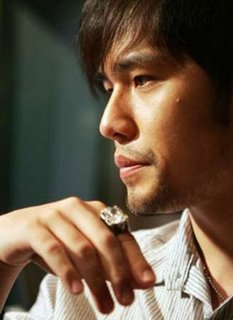

John Doe
CRITIC







依然范特西
 It is often dangerous territory when an artiste names his/her latest effort after a classic album that had yielded fame for the artiste. Just earlier this year, Elton John attempted a sequel to his classic Captain Fantastic and the Brown Dirt Cowboy with The Captain & the Kid. Not surpisingly perhaps, unlike the orginal which garnered almost universal praise, the follow-up was panned and praised in equal parts. John might have aspired to the standards of the landmark album but the results do not always measure up.
It is often dangerous territory when an artiste names his/her latest effort after a classic album that had yielded fame for the artiste. Just earlier this year, Elton John attempted a sequel to his classic Captain Fantastic and the Brown Dirt Cowboy with The Captain & the Kid. Not surpisingly perhaps, unlike the orginal which garnered almost universal praise, the follow-up was panned and praised in equal parts. John might have aspired to the standards of the landmark album but the results do not always measure up.
2006 now witnesses another attempt at sequel creation (at least by name) now that Jay Chou (周杰伦) has finally released his latest work, the ominously named 依然范特西. Well-versed fans of Chou would instantly recognise that this album was named after Chou's breakthrough effort, 范特西. To this pair of ears at least, since the heyday of 范, Chou has stagnated. 八度空间 was a largely disappointing album while叶惠美 and 七里香 had commendable individual tracks but didn't necessarily add up to satisfying, cohesive wholes. And admittedly, I had become so jaded by Chou's music by then that I forwent 十一月的萧邦.
依's opener, 夜的第七章, is something of a showpiece tune. Crammed with atomspheric swelling strings and swathed in melancholy, its melody is wickedly insidious in planting itself into the back of one's mind. Strangely, the song reminded me slightly of 以父知名 but therein lies the conundrum of Chou's output. While his albums/songs usually stick to a certain predictable form, when the songs work, they can work really well. 夜 is a perfect example of this.
I will concede to having a soft spot for the next song, 听妈妈的话 for its simplicity, both in terms of arrangement and content. Built around a simple but pretty piano refrain and paired with exceedingly earnest sentiments, I thought it was a rather lovely number. However, this is familiar territory for Chou who almost usually have a family-inspired song in each of his albums. Check out 爸,我回来了 and 爷爷泡的茶 for reference points. My verdict is exactly the same as 夜: When it works, it's exquisite...even though we've heard it before.
The most-hyped song on this album is of course, 千里之外, a novelty exercise that pairs the weedy vocals of Chou with the polished pitch-perfect delivery of Fei Yuqing (费玉清). How does this interesting (and probably bizarre) pairing pan out? Giving credit where it's due, the song does have an ace melody, a nice 中国风-infused arrangement and typical poetic 方文山 penned imagery. It certainly measures up to its designated "hit ballad of the album" status ala 简单爱 and 七里香. But the song does feel somewhat let down by the rather strained delivery of Chou, whose attempted mimicry (completed with laboured stabs at hitting the high notes) of Fei's crystal clear vocals only exposes what a limited vocalist he really is. No matter, this minor imperfection doesn't really reduce the song's obvious hit quotient.
Upon repeated spins of the album, I remain convinced that this album is bogged down by a rather pedestrian middle section that is Chou by numbers. 草本纲目 smacks of the typical Chou Chinese culture-influenced rap numbers that started with 双截棍 and continued with the likes of 龙拳 and 双刀. It's a filler and this is as much truth as indictment. The schmaltzy ballads 退后 and 心雨 do not escape this accusation either. 红模仿 and 迷迭香 do, however, offer new directions which Chou could explore, the lounge jazz of the latter being a distinct example.
依 ends with 菊花台, a slowburner that did not immediately strike me as great but 方文山's work here is exemplary as usual and there isn't much to nit-pick in truth. Could Chou's comparatively unemotive delivery be flawed? Yes and no. Chou is and probably, always will be a limited vocalist (unless one seriously digs mumbled raps and indecipherable crooning) and one could accuse him of not bringing the emotions across but the man seems to understand the underlying heart of a song. His decision to deliver the song straight here indicates a maturity that not every singer might possess. Consider if this song was to fall into the hands of David Tao (陶喆) or Lee Hom (王力宏), it will probably end up becoming nothing more than a showcase of indulgent R&B vocal showboating. Chou's restrained performance here is true, sincere and understands the mantra of less being more.
Listening to 范 and 依 side-by-side, it is clear that Chou has evolved beyond exaggerrated hip-hop drenched synthesised sounds that he was once so fond of. Chou has steadily learned to embrace other musical genres into his work. While he is still liable to produce disposable fluff like 草本纲目 and formlulaic ballads like 心雨, the moments when he hits the mark do somewhat make up for these missteps. As a standalone, 依 is naught but a passable effort. We can only hope that some of the signs here might point towards a greater maturity for this talented artiste.
7/10